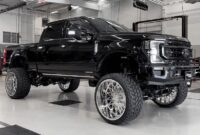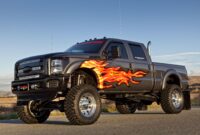Non-CDL Box Trucks For Sale Near Me: Your Comprehensive Guide to Accessible Commercial Transport sale.truckstrend.com
In the dynamic world of logistics, delivery services, and small business operations, the need for reliable and accessible transportation is paramount. While large semi-trucks often come to mind, a significant and increasingly vital segment of the commercial vehicle market caters to those who need substantial cargo capacity without the stringent requirements of a Commercial Driver’s License (CDL). This is where the "Non-CDL Box Truck" steps in – a versatile, cost-effective, and highly sought-after solution for individuals and businesses alike.
This comprehensive guide will delve deep into everything you need to know about non-CDL box trucks, from understanding their specifications and benefits to navigating the buying process and ensuring you find the perfect vehicle "near you." Whether you’re a budding entrepreneur, a seasoned small business owner, or simply someone looking for a robust moving solution, this article will equip you with the knowledge to make an informed decision.
Non-CDL Box Trucks For Sale Near Me: Your Comprehensive Guide to Accessible Commercial Transport
Understanding Non-CDL Box Trucks: The Basics
At its core, a non-CDL box truck is a commercial vehicle designed to transport goods in an enclosed, cube-shaped cargo area, but crucially, its Gross Vehicle Weight Rating (GVWR) is below the threshold that requires a Commercial Driver’s License. In the United States, this threshold is typically 26,001 pounds. This means that anyone with a standard Class D driver’s license can legally operate these trucks, making them incredibly accessible.
These trucks come in various sizes, commonly ranging from 10 feet to 26 feet in box length. The GVWR is the maximum operating weight of the truck as specified by the manufacturer, including the truck itself, its fuel, passengers, and cargo. Understanding this rating is vital, as it directly impacts payload capacity – the amount of weight you can legally carry. Common non-CDL box trucks often have GVWRs around 14,000 lbs, 19,500 lbs, or 25,999 lbs, maximizing their utility while staying under the CDL limit.
You’ll find them powered by both gasoline and diesel engines, with automatic transmissions being a common and preferred feature for ease of driving. While gasoline trucks might have a lower initial cost, diesel engines often offer better fuel efficiency and longevity for heavy-duty applications.
Why Choose a Non-CDL Box Truck? Key Benefits
The popularity of non-CDL box trucks stems from a multitude of compelling advantages that make them an ideal choice for a diverse range of applications:
- No CDL Required: This is the most significant benefit. It dramatically broadens the pool of potential drivers, simplifies the hiring process for businesses, and eliminates the time and expense associated with obtaining a CDL. For personal use, it means you can drive a substantial vehicle without specialized training.
- Cost-Effective Operation: Generally, non-CDL trucks have lower insurance premiums compared to their CDL-required counterparts. Maintenance costs can also be more manageable, and they often consume less fuel than larger, heavier commercial vehicles.
- Unmatched Versatility: Non-CDL box trucks are true workhorses. They are perfect for:
- Last-Mile Delivery: E-commerce, furniture delivery, appliance delivery.
- Courier Services: Expedited freight, specialized parcel delivery.
- Moving Services: Residential and commercial moves.
- Small Business Operations: Mobile workshops, catering, landscaping, event setup, construction supplies.
- Personal Use: Transporting large items, recreational equipment, or personal moves.

- Maneuverability: While larger than a standard van, non-CDL box trucks are significantly more agile than tractor-trailers. This makes them easier to navigate in urban environments, tight loading docks, and residential areas, reducing delivery times and stress for drivers.
- Accessibility for Startups: For new businesses or those expanding their fleet, a non-CDL box truck represents a lower barrier to entry, allowing them to scale operations without the immediate overhead of CDL driver recruitment and associated costs.


Finding "Non-CDL Box Trucks For Sale Near Me": Your Search Strategy
Locating the right non-CDL box truck requires a strategic approach. Here’s how to effectively search for options "near you":
- Online Marketplaces & Aggregators:
- Commercial Truck Trader / TruckPaper: These are dedicated platforms for commercial vehicles, offering a vast selection from dealerships nationwide. You can filter by GVWR, location, and features.
- eBay Motors / Facebook Marketplace / Craigslist: Good for private sellers or smaller dealers. Be cautious and verify listings thoroughly, as scams can exist. Facebook Marketplace is increasingly popular for local sales.
- Dealership Websites: Many commercial truck dealerships have their inventory online. Search for dealerships specializing in light- and medium-duty trucks in your region.
- Local Dealerships: Visit physical commercial truck dealerships. They often have both new and used inventory and can provide expert advice, financing options, and maintenance services.
- Auctions: Public auctions (government surplus, fleet liquidation) can be excellent places to find deals, but they often require quick decision-making and a good understanding of vehicle mechanics. You’ll need to inspect vehicles thoroughly beforehand.
- Direct from Businesses: Some companies upgrade their fleets regularly and sell their older, well-maintained non-CDL trucks directly. Look for "fleet sales" or inquire with local moving companies, logistics firms, or even large retailers.
- Targeted Online Searches: Use specific keywords like "used box truck under 26000 GVWR [your city/state]," "straight truck no CDL for sale [your county]," "16 ft box truck for sale near [your zip code]."
Important Considerations Before Buying
Purchasing a non-CDL box truck is a significant investment. Careful consideration of several factors will ensure you make the best choice:
- GVWR Verification: Always double-check the Gross Vehicle Weight Rating to confirm it is indeed below 26,001 lbs. This information is usually found on a sticker inside the driver’s door or on the truck’s VIN plate.
- Condition & Maintenance History: For used trucks, this is paramount. Request detailed service records. A pre-purchase inspection by an independent, qualified mechanic specializing in commercial vehicles is highly recommended. Check for rust, frame damage, fluid leaks, and tire wear.
- Mileage & Age: While mileage is a factor, commercial trucks are built to endure. A well-maintained truck with higher mileage might be a better buy than a lower-mileage truck that has been neglected. Consider the truck’s intended lifespan for your operations.
- Cargo Space & Payload Capacity: Match the box length and payload capacity to your specific needs. Overloading a truck is illegal and dangerous. Think about the dimensions and weight of the items you’ll be transporting.
- Fuel Type & Economy: Gas trucks are generally cheaper to buy and maintain, while diesel trucks offer better fuel economy and torque for heavier loads and longer hauls, albeit with higher initial costs and potentially more expensive repairs.
- Features & Equipment:
- Liftgate or Ramp: Essential for loading and unloading heavy or bulky items. Different types (tuck-away, rail, cantilever) offer varying benefits.
- Roll-up or Swing Doors: Roll-up doors are convenient in tight spaces; swing doors offer wider access.
- Interior Features: E-track systems, tie-downs, shelving, lighting, and insulation can significantly enhance utility.
- Refrigeration Unit (Reefer): If transporting perishable goods, ensure the reefer unit is fully functional and well-maintained.
- Budget Beyond Purchase Price: Factor in insurance, registration, ongoing maintenance, fuel, and potential repairs. Commercial vehicle financing can differ from personal auto loans.
- Legal & Regulatory Compliance: Even without a CDL, commercial use of a box truck may require a DOT number, IFTA stickers (for interstate travel), and compliance with specific state and federal regulations regarding vehicle inspections, driver logs (if applicable), and weight limits. Research these requirements for your specific use case.
Types and Common Configurations of Non-CDL Box Trucks
Non-CDL box trucks come in several popular configurations, each suited for different tasks:
- Standard Dry Van: The most common type, these are fully enclosed and protect cargo from weather and theft. Ideal for general freight, furniture, and e-commerce deliveries.
- Refrigerated (Reefer) Box Trucks: Equipped with a refrigeration unit and insulated walls, these are essential for transporting temperature-sensitive goods like food, pharmaceuticals, or flowers.
- Moving Trucks: Often designed with features like lower deck heights, built-in ramps, and sometimes even attic space above the cab for extra storage, specifically tailored for household or office moves.
- Cutaway Vans: These utilize the front cab and chassis of a passenger van (like a Ford E-Series or Chevy Express) with a box body attached to the rear. They often feel more like driving a large van and are popular for smaller delivery routes.
- Cab & Chassis with Custom Box: Sometimes, you’ll find a cab and chassis sold separately, allowing you to choose and install a custom box that perfectly fits your needs, whether it’s a dry van, reefer, or specialized body.
Tips for a Successful Purchase
- Define Your Needs Clearly: Before you start looking, know exactly what you need the truck for. What size, payload, and features are non-negotiable?
- Set a Realistic Budget: Include not just the purchase price but also estimated costs for insurance, registration, immediate repairs, and any necessary upgrades (e.g., liftgate installation if not present).
- Thorough Inspection is Key: Never buy sight-unseen. Inspect the engine, transmission, brakes, tires, suspension, frame, and the box itself (check for leaks, structural damage, door functionality, and liftgate operation).
- Always Test Drive: Pay attention to how the truck handles, brakes, shifts gears, and sounds. Test all accessories.
- Get a Vehicle History Report: Services like CarFax or AutoCheck can provide valuable insights into a truck’s past accidents, title issues, and reported mileage. While not always comprehensive for commercial vehicles, they can still be useful.
- Don’t Be Afraid to Negotiate: Prices are often negotiable, especially for used vehicles. Research comparable sales to arm yourself with leverage.
- Understand Financing and Insurance: Get quotes for commercial truck insurance before buying, as it can be a significant ongoing cost. Explore financing options through dealerships, credit unions, or specialized commercial lenders.
Potential Challenges and Solutions
While non-CDL box trucks offer immense advantages, buyers may encounter a few challenges:
- Finding the "Perfect" Truck: Given the variety of options and specific needs, finding a truck that perfectly matches all your criteria (size, condition, price, features) can take time.
- Solution: Be patient, expand your search radius, and be open to trucks that might require minor upgrades (e.g., adding an E-track system).
- Hidden Mechanical Issues (Used Trucks): A truck might look good but have underlying problems.
- Solution: Always get a pre-purchase inspection by a trusted, independent mechanic. Budget for potential post-purchase maintenance.
- Financing Hurdles: Securing a loan for a commercial vehicle, especially a used one, can be different from a personal car loan.
- Solution: Work with dealerships that offer in-house financing or explore lenders specializing in commercial vehicle loans. Have a strong business plan or credit history.
- Insurance Complexity: Commercial insurance can be more complex and expensive than personal auto insurance.
- Solution: Shop around for quotes from multiple commercial insurance providers. Understand the different types of coverage (liability, cargo, physical damage) and choose what’s appropriate for your business.
- Regulatory Compliance: Staying compliant with DOT regulations, even without a CDL, can be confusing.
- Solution: Consult with a commercial vehicle specialist or look up federal and state DOT websites. Many states offer resources for small businesses on commercial vehicle regulations.
Table: Estimated Price Ranges for Non-CDL Box Trucks (Used, USD)
Please note that prices are highly variable based on factors like make, model, year, mileage, condition, engine type, specific features (e.g., liftgate, refrigeration), and geographical location. This table provides a general range for used non-CDL box trucks. New trucks will be significantly higher.
| Category | Description | Typical Price Range (Used, USD) | Key Factors Influencing Price |
|---|---|---|---|
| Small (10-14 ft) | Often cutaway vans or smaller chassis, ideal for lighter loads, urban delivery. | $8,000 – $25,000 | Age, mileage (higher mileage on older units often cheaper), engine type (gas typically less than diesel), overall mechanical condition, presence of a liftgate or ramp, previous owner (fleet vs. single owner). |
| Medium (16-20 ft) | The most popular size, offering a balance of capacity and maneuverability. | $15,000 – $45,000 | Year, mileage, make (e.g., Ford E-Series, Isuzu NPR, GMC Savana), engine type (diesel often commands a premium), transmission type, condition of tires and brakes, presence and type of liftgate, any interior customizations (e.g., E-track, shelving), maintenance history. |
| Large (22-26 ft, Non-CDL) | Max size for non-CDL, higher payload capacity, often diesel engines. | $25,000 – $60,000+ | Newer models, lower mileage, diesel engine, specific manufacturers (e.g., Hino, Fuso), heavy-duty features (air ride suspension), advanced safety tech, excellent maintenance records. Prices can exceed $60k for well-equipped, lower-mileage units near the 25,999 lb GVWR limit. |
| Refrigerated (Reefer) | Any size with an insulated box and active refrigeration unit. | $30,000 – $80,000+ | Truck’s age and mileage, age and condition of the refrigeration unit (most critical), insulation quality, single or multi-temperature zones, overall mechanical reliability of both the truck and the reefer system. These are always significantly more expensive due to specialized equipment. |
| New Non-CDL Box Truck | Brand new, full manufacturer warranty. | $45,000 – $90,000+ | Make and model (e.g., Ford F-Series, Isuzu N-Series, Hino 195), box length, engine type, transmission, added features (e.g., backup cameras, navigation, advanced safety packages, premium interiors), dealer markups. Customization adds further cost. |
| Specialty/Customized | Mobile workshop, food truck conversion base, specialized utility body. | Varies Widely | Depends entirely on the extent of customization, type of equipment installed (e.g., generators, specialized tools, kitchen equipment), and the base truck’s condition. Can range from $20,000 for a basic shell to well over $100,000 for fully equipped mobile units. |
Disclaimer: These are approximate ranges for the used market. Actual prices will vary significantly based on the factors listed. Always obtain specific quotes and conduct thorough due diligence.
Frequently Asked Questions (FAQ)
Q1: What is the maximum GVWR for a non-CDL box truck?
A1: In the United States, the maximum Gross Vehicle Weight Rating (GVWR) for a truck that does not require a CDL is 26,000 pounds (or 25,999 pounds to be absolutely safe).
Q2: Do I need a DOT number for a non-CDL box truck?
A2: If you are operating the truck for commercial purposes, especially across state lines, you will likely need a USDOT number. Even for intrastate commercial operations, many states require a DOT number. It’s crucial to check your specific state’s regulations and federal requirements.
Q3: What’s better: gas or diesel for a non-CDL box truck?
A3: Gas trucks are generally cheaper to purchase and maintain, making them suitable for shorter routes and lighter loads. Diesel trucks offer better fuel efficiency, more torque for heavy loads, and longer engine life, making them ideal for frequent, longer hauls, but they come with a higher upfront cost and potentially more expensive maintenance.
Q4: How do I finance a used box truck?
A4: You can finance a used box truck through commercial truck dealerships, credit unions, or specialized commercial vehicle lenders. The process often involves a credit check, a down payment, and sometimes a business plan if you’re a new business.
Q5: Can I use a non-CDL box truck for personal moving?
A5: Yes, absolutely! Many individuals rent or purchase non-CDL box trucks specifically for personal moves, as they offer ample space without requiring a special license.
Q6: What should I look for during a pre-purchase inspection?
A6: Key areas include the engine (fluid levels, leaks, strange noises), transmission (smooth shifting), brakes (pads, rotors, air system if applicable), tires (wear, tread depth), suspension, lights, and the condition of the box itself (leaks, structural integrity, door function, liftgate operation). It’s best to hire an independent mechanic specializing in commercial vehicles.
Q7: How much does insurance cost for a non-CDL box truck?
A7: Commercial truck insurance costs vary widely based on the truck’s value, your driving record, the type of cargo, your operational radius, and the specific coverage you choose. It can range from a few hundred dollars to several thousand dollars per year. Always get multiple quotes from commercial insurance providers.
Conclusion
Non-CDL box trucks represent an invaluable asset for individuals and businesses seeking efficient, accessible, and versatile transportation solutions. Their ability to handle significant cargo without requiring a specialized license makes them a cornerstone of last-mile delivery, small business logistics, and personal heavy hauling.
The journey to finding the right "Non-CDL Box Truck For Sale Near Me" requires diligent research, thorough inspection, and a clear understanding of your operational needs and budget. By following the advice outlined in this guide – from leveraging online resources to understanding the nuances of GVWR and maintenance – you can confidently navigate the market and acquire a vehicle that will reliably serve your purpose for years to come. With careful planning, a non-CDL box truck can be a powerful engine for your personal or professional success.




